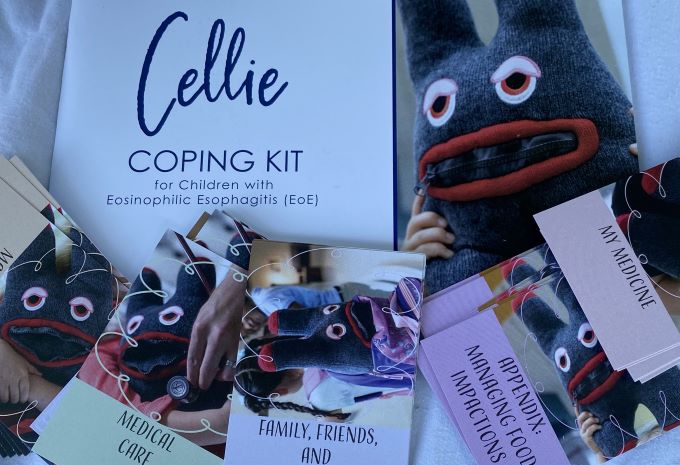Research In Action
Research In Action
Breadcrumb

Have you heard of Eosinophilic Esophagitis (often referred to as EoE)? Until a few years ago, I had no idea what EoE was, even though I have worked in a hospital for my entire career. When a colleague, Dr. Alain Benitez, reached out to me to about adapting an intervention for children with EoE, I took a look at the challenges that children with EoE face and immediately agreed that families of children with EoE need resources and support to help them manage their medical care and emotional reactions to EoE.
Managing Eosinophilic Esophagitis
In brief, EoE is chronic inflammatory disease. Children with EoE often experience symptoms of abdominal pain, heartburn, and food impaction (that is, food getting stuck in their throat when they try to swallow, sometimes requiring emergency medical care). These symptoms can be very difficult and stressful for families to manage and can lead children to miss school and develop anxiety. Treatment can require very strict diets, repeated endoscopies, and sometimes medications. The prevalence of EoE is increasing, which means even more families in the future will face these challenges.
Empowering Parents with a Coping Tool
Partnering together, our teams at the University of Kentucky Healthcare and Children’s Hospital of Philadelphia developed and evaluated the Cellie Coping Kit for Children with EoE to help families navigate EoE and their child’s medical care. The coping tool was created so that families could use it flexibly, on their own time, and at their home, at medical appointments, at school or anywhere else they needed it. The tool includes coping cards and a caregiver guide with evidence-based tips on how to manage the challenges of EoE, as well as a plush toy to engage kids with the coping kit.
We conducted a pilot study with families from Kentucky and Pennsylvania that highlighted promising results:
- Most of the families who participated in the study reported that the intervention was easy to use (>90%) and that they would use it again (>75%).
- Nearly all families indicated that they would recommend the intervention to others (>90%).
- More than half of families reported learning new information, such as how to better check ingredient lists and coping strategies (such as how to cope with getting IVs, communicate about EoE, and how to stay calm).
While more research is needed on how to best support families with EoE, these findings suggest that this type of tool may be a good start. As the medical field continues to shift towards family-centered care and trauma-informed care, tools such as the Cellie Coping Kit for Children with EoE have the potential to engage families in medical care and empower parents to support their children.
Click here for more information on The Cellie Coping Kit.
*Disclosure: Dr. Marsac is a co-inventor of the Cellie Coping Kit and CEO of the Cellie Coping Company. The University of Kentucky (UK), Children’s Hospital of Philadelphia and Dr. Marsac have the potential to benefit financially from revenue generated from the kit. UK’s conflict of interest committee oversees research related to this tool.




